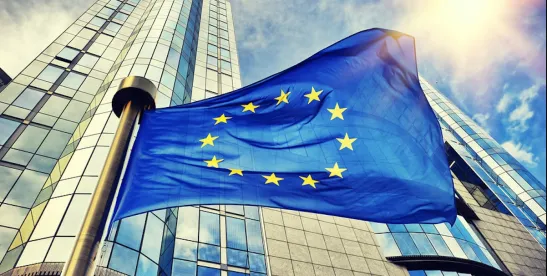ANTITRUST AND COMPETITION
European Commission Charges Company with Providing Incorrect, Incomplete, and Misleading Information During a Merger Control Proceeding
On 19 March 2024, the European Commission (Commission) sent a Statement of Objections to a manufacturer and distributor of mineral fibre sandwich panels (Company) in which it took the preliminary view that the Company intentionally or negligently provided incorrect, incomplete, and misleading information during the Commission’s investigation of the Company’s proposed acquisition of a competitor (Transaction). The Company has allegedly provided erroneous information relating to the scope of the relevant market, the existence of entry barriers, the importance of innovation, and the closeness of competition between the merging parties and vis-à-vis their competitors.
In March 2021, the Transaction was filed with the Commission, which then opened an in-depth investigation in April 2021 on grounds that the Transaction could reduce competition and lead to price increases in the market for mineral fibre sandwich panels in several Member States and the United Kingdom. In April 2022, the parties abandoned the Transaction.
The EU Merger Regulation obliges companies in a merger investigation to provide correct and nonmisleading information both when notifying a transaction and in reply to the Commission’s requests for information. The European Commissioner for Competition Margrethe Vestager stated the following: “Companies must supply accurate and complete information during our merger investigations. This is essential for merger reviews to remain both speedy and effective.” This obligation applies regardless of whether the information has an impact on the ultimate outcome of the Commission’s review of mergers and acquisitions.
If the Commission were to conclude that the Company intentionally or negligently provided incorrect, incomplete, or misleading information, it could impose a fine of up to 1% of its worldwide group turnover in the last financial year.
The Commission has previously imposed hefty fines for the provision of incorrect or misleading information in several cases. In May 2017, the Commission imposed a fine on a major tech company of €110 million for providing misleading or incorrect information. Similarly, in April 2019, the Commission imposed a fine of €52 million on a multinational conglomerate. In May 2021, the Commission imposed a fine of €7.5 million on a life science company for providing incorrect or misleading information because, in the context of remedies, an innovation project that was closely linked to a divested business had not been disclosed to the Commission.
This investigation sends a strong reminder to companies to carefully comply with all aspects of EU merger rules, including the obligation to provide complete and correct information when filing mergers or acquisitions with the Commission and to respond to requests for information.
Animal Health Company Investigated Over Abuse of Dominant Position Concerning Painkillers for Dogs
On 26 March 2024, the Commission started a formal investigation to determine whether the global animal healthcare company Zoetis may have infringed EU competition law by blocking the launch of a competing novel biologic medicine for the treatment of chronic pain in dogs.
Zoetis developed “Librela”, the first and the only monoclonal antibody medicine approved in the European Economic Area (EEA) for the treatment of pain associated with osteoarthritis in dogs.
Concurrent with the Librela development, Zoetis acquired another late-stage pipeline product for the same pain indication, which was to be commercialised by a third party with exclusive commercialisation rights in the EEA. Given that Zoetis terminated the development of this alternative pipeline product and refused to transfer this pipeline product to the third party, the Commission is concerned that Zoetis engaged in exclusionary behaviour contrary to Article 102 of the Treaty on the Functioning of the European Union.
This is the first time that the Commission is formally investigating a potential abuse of a dominant position in relation to an exclusionary termination of a pipeline product, which was expected to be marketed by a third party.
This investigation follows a complaint lodged in November 2020 by a French company active in the animal health sector. The Commission inspected Zoetis’ premises in Belgium in 2021. The Commission will prioritise conducting an in-depth investigation. Zoetis and National Competition authorities have been informed of this investigation and must avoid taking decisions that would conflict with a decision envisaged by the Commission in the proceedings it has initiated. The opening of a formal investigation does not determine the outcome and there is no legal deadline for its conclusion.
SANCTIONS
European Union Imposes Additional Sanctions on Russian Individuals and Entities
On 22 March 2024, the European Union imposed restrictive measures against 33 persons, such as heads of relevant penal colonies and members of the judiciary, and two entities (penal colonies) linked to the death of Russian opposition politician Alexei Navalny.
The measures have been adopted within the framework of the EU Global Human Rights Sanctions Regime (Regime), established on 7 December 2020, in the aftermath of the death in prison of Sergei Magnitsky, a Russian whistleblower who brought attention to a potential massive fraud involving Russian officials. The Regime enables the European Union to target individuals, entities and bodies, both public and private, responsible for, involved in or associated with serious human rights violations and abuses worldwide.
The individuals and entities targeted by the restrictive measures are subject to an EU travel ban, as well as an asset freeze. Additionally, it is forbidden to make funds available, either directly or indirectly, to the listed persons and entities.
The restrictive measures under the Regime currently apply to a total of 104 individuals and 23 entities from multiple countries. The listings of individuals and entities are kept under constant review and the restrictive measures are reviewed annually. The entire Regime has been prolonged until 8 December 2026.
FINANCIAL AFFAIRS
Eurogroup Defines Capital Markets Union Priorities for Next Mandate
On 11 March 2024, Eurogroup finance ministers agreed on the priorities for the Capital Markets Union (CMU) for the next institutional mandate and issued a political statement outlining initiatives to foster European financial markets’ attractiveness and resilience.
The CMU, a strategy launched by the Commission in 2015, aims at creating a single market for capital and facilitating capital flows across the European Union. In 2020, the Commission adopted a strategy for the current cycle (2019–24) and is expected to adopt a new one in the next cycle. Member states agreed to explore policy priorities in this area for the next Commission, expected to take office at the end of 2024 following the Parliament’s elections in June.
Finance ministers in inclusive format (i.e., including both noneuro and euro countries) identified three main areas of CMU action for 2024–2029: (i) enhancing regulatory frameworks to promote competitiveness and liquidity; (ii) facilitating private funding access for EU businesses; and (iii) improving investment opportunities for retail investors. To achieve these objectives, ministers pointed out 13 specific measures including, among others, removing barriers to the development of the EU securitisation market, strengthening supervisory convergence among national competent authorities and enhancing the existing powers of the European Supervisory Authorities, reducing the regulatory burden on financial entities, introducing policy measures to improve EU businesses’ financing conditions, and making national income tax systems more supportive of investments.
Member States have tasked the Commission with assessing the situation as early as possible into the next cycle and proposing relevant implementing measures in light of these priorities. Industry representatives are invited to participate in the development of the forthcoming legislative work.
On 24 March 2024, during the last Euro Summit meeting, euro and noneuro countries endorsed the political statement and called on Member States and EU institutions to take all necessary measures to implement the action plan. Member States discussed practical proposals for the priorities identified during the Special European Council meeting on 17–18 April 2024. The next meeting of the European Council is planned for June 2024.
CHEMICALS
State of Play: EU PFAS Restriction Proposal
The European Chemicals Agency (ECHA) has outlined the next steps in the assessment of the proposal to ban per- and polyfluoroalkyl substances (PFAS) in the European Union. The restriction proposal, submitted last year to ECHA by five national authorities from the EEA (Germany, the Netherlands, Denmark, Sweden, and Norway) aims to ban the manufacture, placing on the market (including imports), and use of PFAS in nonessential applications (those that are not necessary for health or safety and are not critical for the functioning of society, and where acceptable alternatives exist). The ban is to be implemented under Regulation (EU) No 1907/2006 (REACH) and it is estimated to cover over 10,000 different PFAS.
ECHA’s scientific committees for Risk Assessment and for Socio-Economic Analysis are currently evaluating the proposal, including on the basis of over 5600 comments received during the public consultation, which ran between March and September 2023. In parallel, the national authorities who prepared the proposal, are updating their initial report in light of the input received through the public consultation.
In the upcoming two scientific committee meetings (June and September 2024), the following sectors will be evaluated:
- Metal plating and manufacture of metal products;
- Textiles, upholstery, leather, apparel, carpets;
- Food contact materials and packaging; and
- Petroleum and mining.
Once ECHA delivers its final opinion, which is expected in 2025, it will be up to the Commission and Member States to decide whether the ban should be implemented under the REACH Regulation.
If adopted, the ban would have wide repercussions, as PFAS are widely used across different sectors of the economy. The ban would likely be introduced in phases over several years, with transitional periods for certain sectors.
ENVIRONMENTAL, SOCIAL, AND CORPORATE GOVERNANCE AFFAIRS
European Parliament Approves by Large Majority the Proposed Regulation on Packaging and Packaging Waste
On 24 April 2024, the European Parliament (Parliament) formally approved the provisional agreement it reached with the Council of the European Union (Council of the EU) on 4 March 2024 on the proposed Regulation on Packaging and Packaging Waste (PPWR). The PPWR will replace the existing Packaging and Packaging Waste Directive, finally providing for a harmonized set of rules in all EU Member States.
The PPWR sets overall packaging reduction targets, whereby packaging should be reduced by 5% by 2023, 10% by 2035, and 15% by 2040. By 2029, EU Member States will need to ensure the separate collection of at least 90% per annum of single-use plastic bottles and metal beverage containers. Deposit return systems will be mandatory unless an EU Member State reaches a separate collection rate above 80% in 2026 and submits an implementation plan for achieving the overarching 90% separate collection target. Certain packaging formats, including single-use plastic packaging for fruit and vegetables, food and beverages, and small cosmetic and toiletry products used in the accommodation sector will be banned from 1 January 2030.
The PPWR will also introduce new re-use targets to be achieved by 2030 for beverage containers (with some exceptions, such as for wine and milk), transport and sales packaging (except for packaging for dangerous goods and flexible packaging in direct contact with food), and grouped packaging. Cardboard boxes are generally exempt, as is transport and sales packaging used for transport between a company’s own business locations. EU Member States may grant a renewable five-year derogation from the attainment of the re-use targets if specific conditions are met.
The provisionally agreed PPWR maintains most of the sustainability requirements for all packaging placed on the market, as proposed by the Commission. Notably, the PPWR will:
- Restrict the placing on the market of food contact packaging containing PFASs above certain thresholds;
- Set targets for minimum recycled content in plastic packaging with some exceptions such as for compostable plastic packaging;
- Limit the empty space ratio in grouped, transport, and e-commerce packaging to a maximum of 50%; and
- Require manufacturers and importers to ensure that the weight and volume of packaging are minimized (except for existing protected packaging designs).
The Parliament formally approved the text at first reading during its plenary session on 24 April 2024. The date for the vote in the Council of the EU has not yet been publicly announced. Once formally approved by the Council of the EU, the text can be published and enter into force.
Simas Gerdvila, Petr Bartoš, Vittoriana Todisco, Rebecca Halbach, Kathleen Keating, Covadonga Corell Perez de Rada, and Edoardo Crosetto contributed to this article.









 />i
/>i
